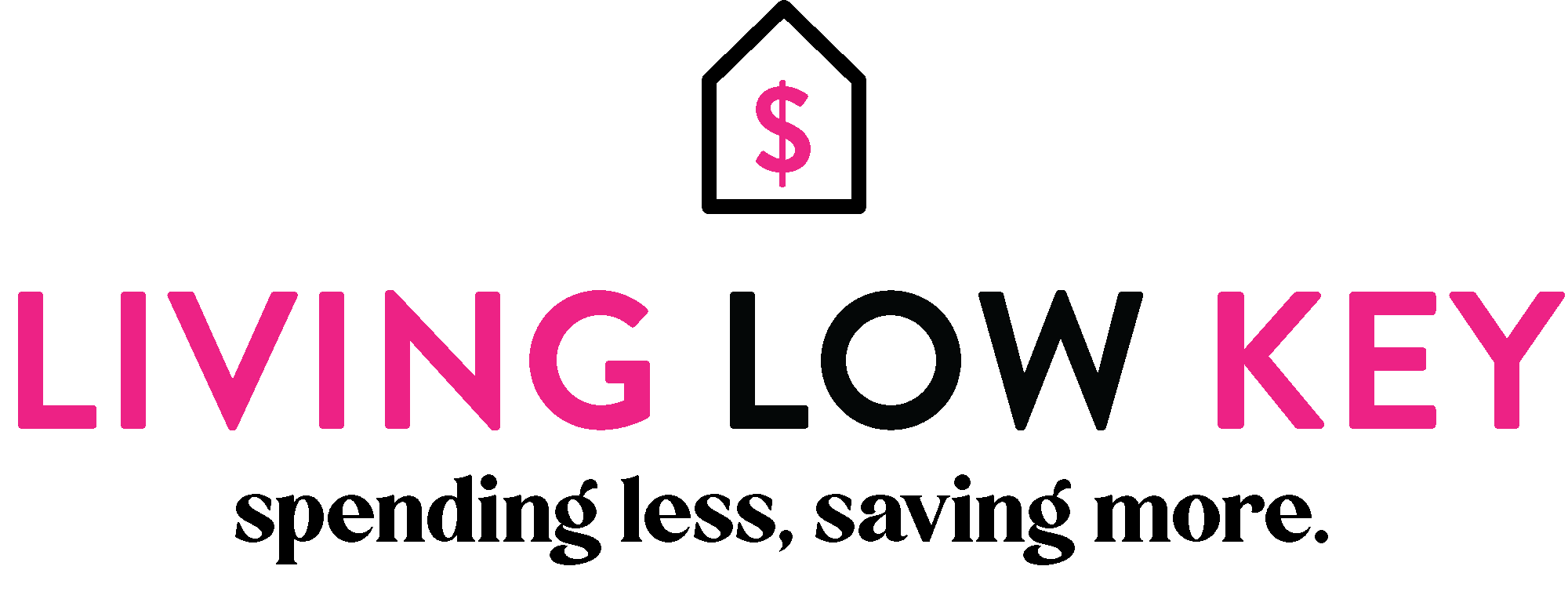Living below your means is something that everyone should be doing, but something that isn’t talked about enough.
When it comes to living below your means, all you need to do is look at the average debt per household in the U.S. to see that this may be a problem for many people.
In this article, we will look at what living below your means looks like and how you do it.
Let’s take a look:

Why Is It Crucial You Live Below Your Means?
It’s incredibly important that you live below your means to make sure that you aren’t spending any money that you don’t actually have.
If you are going to be spending money that you don’t have in your bank account, you will find yourself in debt pretty quickly.
If you are busy working your way into debt, you won’t be able to make good progress on any other financial goals you have, such as financial freedom, buying a house, etc.
Benefits Of Living Below Your Means
So, what are some benefits that you get from living below your means? Let’s have a look:
Less Stress
If you are living above your means, chances are you are feeling under all kinds of stress.
When you live below your means, there is no need for any stress, as you know that you have enough money to pay for your bills and the fun things in your life.
We could all use a little less stress in our lives, and living below your means is a great place to start.

Financial Freedom
Who doesn’t want to have financial freedom? Financial freedom is where you have enough money to fund your lifestyle without having to actively work anymore.
This could be from investments or other kinds of passive income that you have going on. If you are living above your means, it will be near enough impossible for you to achieve this.
Job Flexibility
If you live below your means, you can free up some cash which means that you can make better financial decisions. Want to work less? This is something that you could be able to do.
Better yet, are you wanting to leave a job you hate, or just looking for a change? Living below your means allows you the freedom to switch careers without worry.

You Can Build Wealth
Building wealth is something that everyone should be aiming to do. When you are living under your means, that should mean that you have money left over after you have paid for your bills and what you need to live.
You can use this extra money to build wealth.
Related articles:
- Living Cheap: How To Live Cheap And Still Thrive
- 50 Genius Frugal Living Tips You Should Adopt To Save Money
- How To Stop Spending Money On Unnecessary Things You Don’t Need
- 20 Things I Simply Stopped Buying To Save Money
Grab Your FREE Budget Binder Today!
Start saving more money and pay off your debt with this FREE Budget Binder
How Living Beyond Your Means Affects Your Finances
Living beyond your means will affect you negatively, whether that’s over the short term or long term.
Signs You Are Living Above Your Means
Some signs can show you if you are living beyond your means. Are you showing any of these signs?
You Have Credit Card Debt
There are many reasons why people get into debt, and we are not here to judge. But being in debt is usually because of spending on something you did not have the money for.
No matter what the reason for getting into debt, stop living beyond your means.
An easy way to do this is to stop using your credit cards, at least short term. I know some people highly enjoy racking up points on their credit cards for flight miles etc, which is fine.
However, if you are finding yourself living beyond your means, something has to give. And it should be your credit cards. If you don’t have the money to buy something, don’t buy it.
You Have A Low Credit Score
A credit score is what lenders look at as a tool to figure out if you are a good candidate for them to lend money to.
They want to know if you will pay the money back to them, and they can see this by looking at if you have a lot of debt out with other lenders (a sign that you are spending more than you can afford) and if you have missed payments in the past.
What is considered a bad credit score? Anything below 670.
So I’m sure you are wondering how do I check my credit score. There are a handful of free ways to check your credit score with a simple Google search. However, I highly recommend downloading the Mint app on your phone. Not only is this budgeting app a great way to start tracking where your money is going.
BUT you can also use it to check your credit score for free. And yes, the entire app is free! It’s definitely a neat little tool to check out.
You Are Spending Money You Don’t Have
This one may sound obvious, but a sign that you are living beyond your means is that you are spending money you don’t have.
This can happen when you don’t have any control over your money (i.e., you’re not budgeting) and aren’t thinking about the consequences of just buying whatever you want, whenever you want.
More Than 28% Of Your Household Income Goes To Your Mortgage
It sounds pretty specific, but have you looked at the percentages of what your money is going to be within your budget? One of the biggest expenses can be housing, and this can get out of control easily.
Check out how much you are spending on your housing, as it may be worth moving somewhere smaller to reduce your costs.
How To Start Living Below Your Means
Now you know some ways that you may be living above your means let’s look at some ways that you can start living below your means.

Make A Budget
The first thing that you need to do is to make a budget. Budgets are needed to keep your finances in order and help you start living below your means.
If you don’t have a budget in place, you will spend money you didn’t even know you had. Once you start budgeting, the money you didn’t even know you had will start coming out of the woodwork.
There are a few different budgeting methods that you could try out, such as:
Zero Based Budgeting
Zero-based budgeting is something that we think everyone should be doing in order to live within their means.
To use this method, you will need to give every dollar a job so that you don’t have any money sitting in your account without a purpose. This helps to make sure that you have enough savings and that every bill is covered.
Let’s give your money a purpose!
Learn more about zero-based budgeting here!

Pay Yourself First
Pay Yourself First is where you make sure you treat anything that you are saving for, like a bill. So when you get paid, you will send your money right away to the things that are important to you.
For example, on the day I get paid. I have it automatically set up to where the money goes to our retirement accounts, college savings for the kids, some to save for holidays, etc etc.
This way, all of our bills are paid, and all of our accounts are replenished before I even get my hands on our money.
Envelope Method
The cash envelope method is a very popular budgeting tool. I have used it for years and highly recommend it to get you on track!
With the cash envelope method, you will separate your budget categories, such as food, gas, kids, etc, into different envelopes. Then you take the money out as cash. Placing each budgeted amount into each envelope. Once the money is gone from the envelope, you can’t spend it again until your next pay period.
The whole point of the cash envelope method is so that you can clearly see how much money is left in each of your budget categories, which should help you stay on track with the amounts that you have budgeted for.
If you are interested in getting started, you can download our free cash envelopes. Print them off and get started! Simple plain white envelopes work as well. Suppose you are looking for an actual cash wallet. These are my fav!
50/30/20 Method
The 50/30/20 budgeting method is a method that you may enjoy if you like to have a clear structure to follow and perhaps you aren’t sure how much money to allocate to your budgeting categories.
This is how it looks:
- 50%: Needs. These are things that you need to live, such as your housing
- 30%: Wants. These are things that you want to have but aren’t essential, such as nights out with friends.
- 20%: Savings. After the other 80% is paid, you will put the remaining 20% towards your savings.
Related article: 4 Budgeting Methods You Must Try (When You Don’t Know Where To Start)
Track Your Expenses
Tracking your expenses is one of the best things you can do when working on your finances.
It will be one of the main things that will help you to stop living above your means.
Tracking your expenses is where you write down what you have been spending each day. It doesn’t matter where you record it – it could be on a spreadsheet, in a planner/notebook, or just on some random piece of paper.
It’s important to do this because you are connecting with your budget each day, and if you compare it to what you have budgeted for, you can see if you are keeping on track.
Not only that, but you will be able to analyze why you have been spending the way that you do. You may begin to see a pattern, such as always ordering takeout after a long day at work.
Make sure to grab our free budget binder printables and start tracking your expenses today!
Reduce Your Spending
A key part of living below your means is reducing how much you are spending. If you are spending all of your paychecks, then you will be living beyond your means in no time if you aren’t already.
Having a budget will really help with that, and track your expenses as discussed because you will be able to identify if there are any areas in which you need to cut back.
That doesn’t mean that you have to cut all of the fun things out of your life, but you should be more specific about what you want to spend your money on.
Downsize Your Home
This may sound a bit more drastic than some of the other things mentioned in this article, but downsizing your home is an awesome way to try and live beneath your means.
So often, our housing costs are one of the biggest (if not the biggest) of our budget categories. If you can reduce this cost, it will save you a ton of money over your lifetime.
Pay Off Your Debt
When you are living beyond your means, you are usually getting into debt so that the debt can pay for the things you can’t afford.
To start moving forward with your finances, you will need to pay off the debt that you have. See, when you live below your means, you will have extra money left over at the end of the month. You will then take that money to pay off your debt.
Summary – How To Live Below Your Means
Living below your means is one of the most important things that you should do in your life, especially for your finances.
I hope this article helps you figure out what you need to do in order to start living on less so that you can get started on the path to building wealth.
Grab Your FREE Budget Binder Today!
Start saving more money and pay off your debt with this FREE Budget Binder
Do me a favor and if you enjoyed this article, save it for later and come follow us on Pinterest for more money-saving ideas.

Related articles:





 Rakuten Review: Our Honest Opinion Of This Cash Back Site
Rakuten Review: Our Honest Opinion Of This Cash Back Site